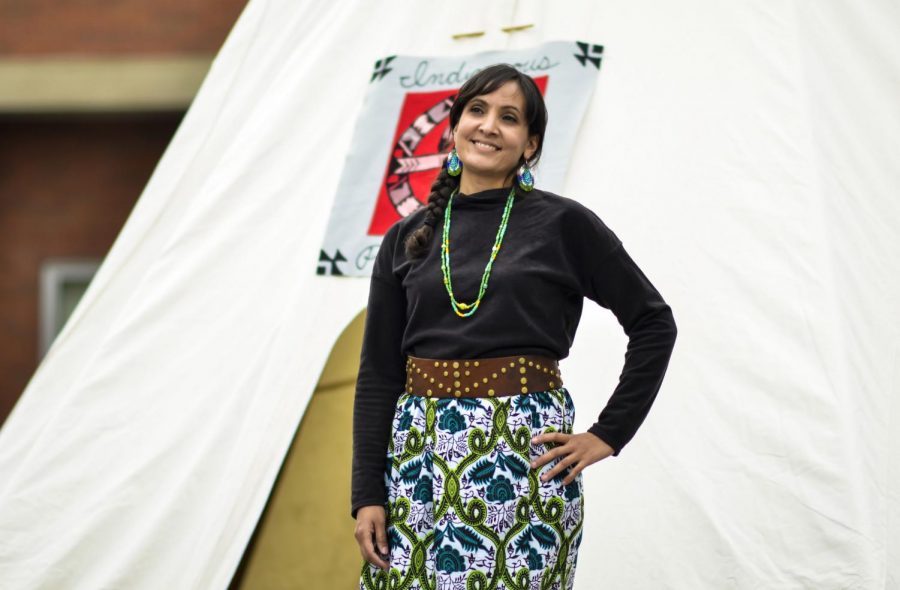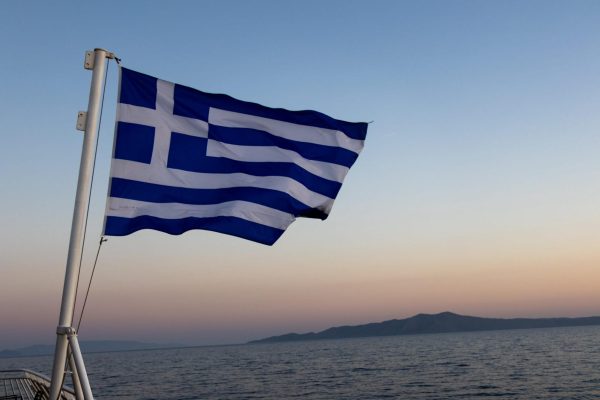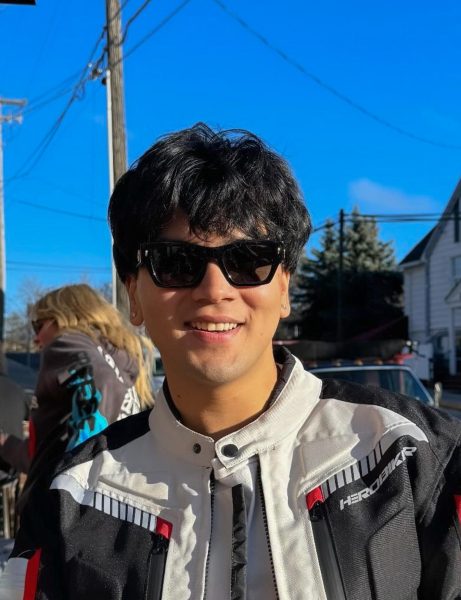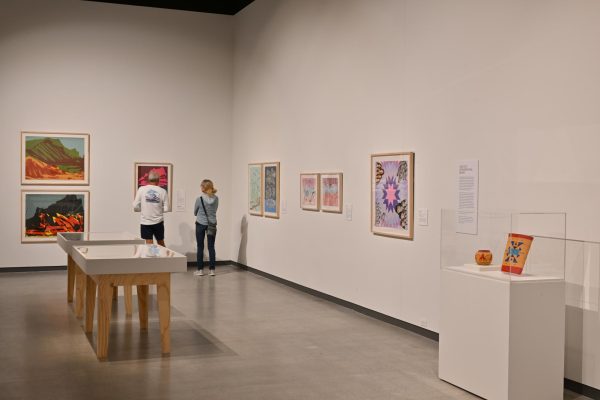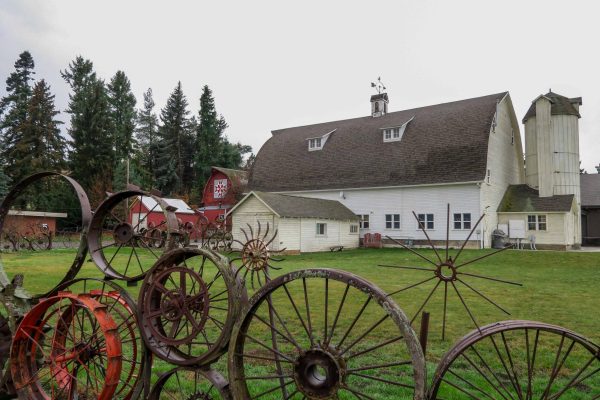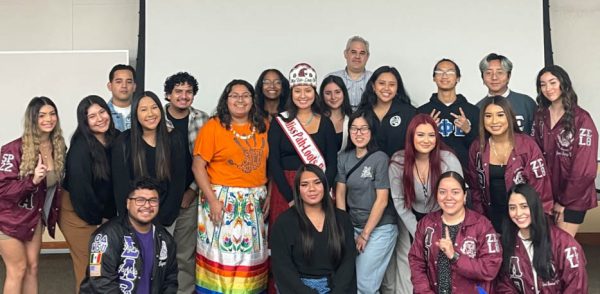Native Programs director says she wants to make WSU home for students
Faith Price says she strives to fight ignorance about indigenous issues, culture
PAIGE CAMPBELL | DAILY EVERGREEN FILE
Then assistant director of Native Programs Faith Price poses for a picture in front of a tipi on Oct. 8, 2018, which was Indigenous Peoples’ Day on the Glenn Terrell Friendship Mall.
November 13, 2019
From her office on the bottom floor of Cleveland Hall, and sometimes outside of it, Faith Price oversees Native Programs at WSU, which cover everything from Native American student recruitment and retention, to working with Native American clubs and organizations, to helping students.
Price serves as the director of Native Programs, which sees her dealing with mainly two parts of the Native American student experience at WSU — recruitment and retention.
On the recruitment side, Price directs camp and visitation programs that bring to WSU middle and high school Native American students from as far as Montana and California. This is to allow them to meet other Native American college students, go through workshops, and get a good view of college life, Price said.
On the retention side, she supervises staff such as the Native American Retention Specialist Joelle Burg. She also hosts workshops and cultural activities to “make [Native students] feel not so far from home,” Price said.
“Faith Price does everything,” said Dominick Joseph, public relations officer for the Native American Women’s Association. “She is like a motherly figure for all of us, and just a lot of guidance.”
Joseph said he met Price when she came to the Tulalip Tribes as part of Native American Student Recruitment. Tulalip Tribes is based out of the western side of the state as well as the Cascade Mountains and part of Oregon, according to its website.
“She came to my tribe first-handedly and advocated for WSU and said, ‘Hey, Native students, you guys can do this,’” Joseph said. “I didn’t even go to the school, yet and she was already helping me.”
Similarly, Jaissa Grunlose, president of Native American Women’s Association, said she met Price through the Tribal Nation Building Leadership Program, a program that builds leadership and allows for Native students to get acquainted.
“I think to us in the Native Center she is like the mom away from home, the auntie that helps us all,” Grunlose said. “That makes sure we’re getting food, that we’re getting sleep, and that we’re going to be successful.”
Price herself is a member of the Wampanoag tribe from Massachusetts but grew up on the Flathead Indian Reservation in Montana. She majored in social work while at the University of Montana, and has worked with the Upward Bound and McNair Scholars programs.
Once on to WSU, she started in a temporary position at the financial aid office before meeting former director Barbara Aston and taking a job in the Native Center.
“It’s been a really good opportunity for me and has allowed me to continue working in an area that I’m passionate about,” Price said. “Getting to know people, helping them reach their potential and helping them navigate college in general and being successful.”
With Native Programs, Price said she wants to fight the lack of knowledge about Native American culture and history and the invisibility Native American students face by not seeing themselves reflected in the curriculum or culture of WSU.
Price emphasizes the importance of community and Native American culture at WSU. She said she encourages students to take a Native American history class and attend one of the organization meetings or events going on during Native American History Month all of November.
“A lot of Americans have gone through their lives never meeting a Native person, never being exposed to the culture and not being exposed to the history,” Price said. “And when they do learn about Natives, it is about history, so they think Native Americans don’t exist anymore.”
Price said she is constantly trying to improve not only her programs so that more Native American students come in and out of WSU, but also herself as director and counselor to better help them.
“If I were to say anything, I’d say thank you for installing inspiration in me even before she even met me, because it never seemed like it was a chore for her,” Joseph said.
“I appreciate her so much and all that she’s helped me accomplish at Washington State and I’m never going to forget how she’s helped me,” Grunlove said.

